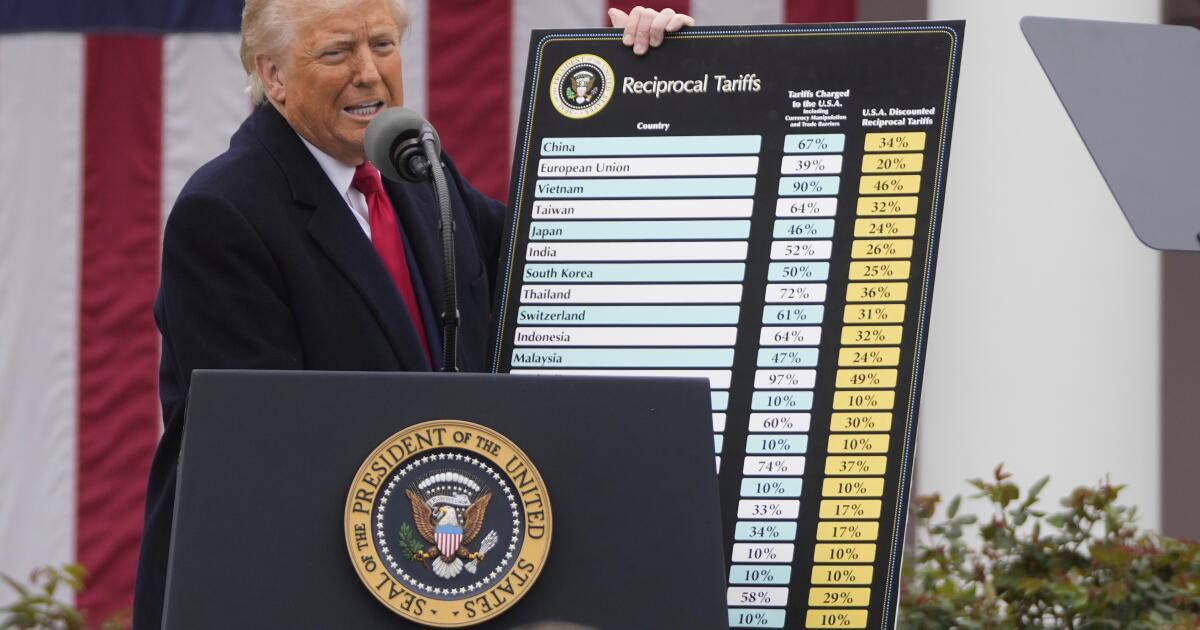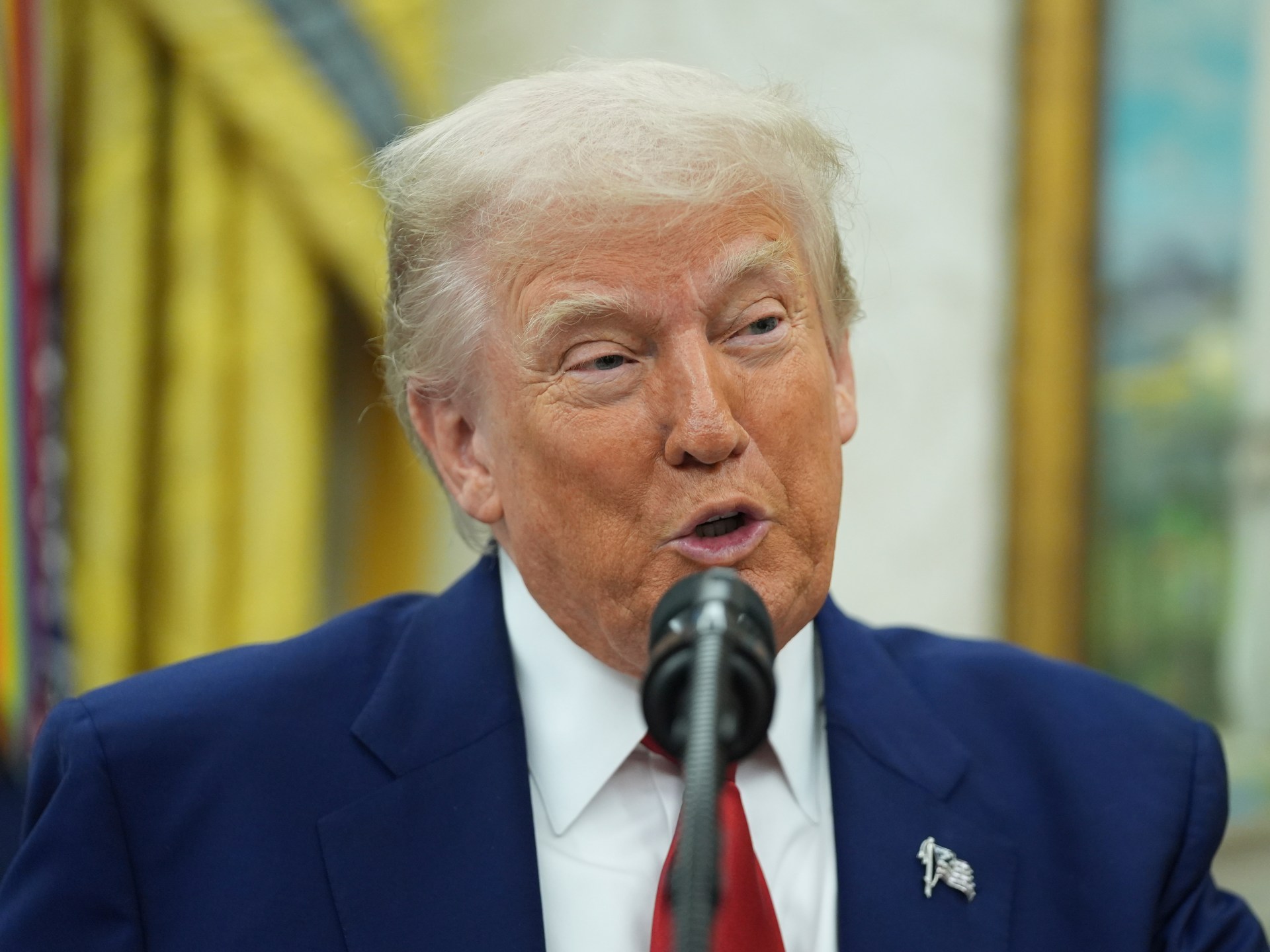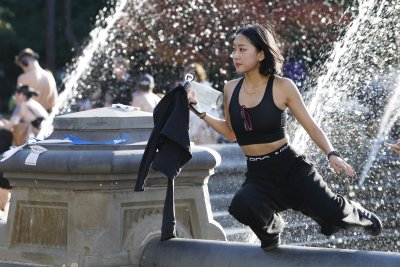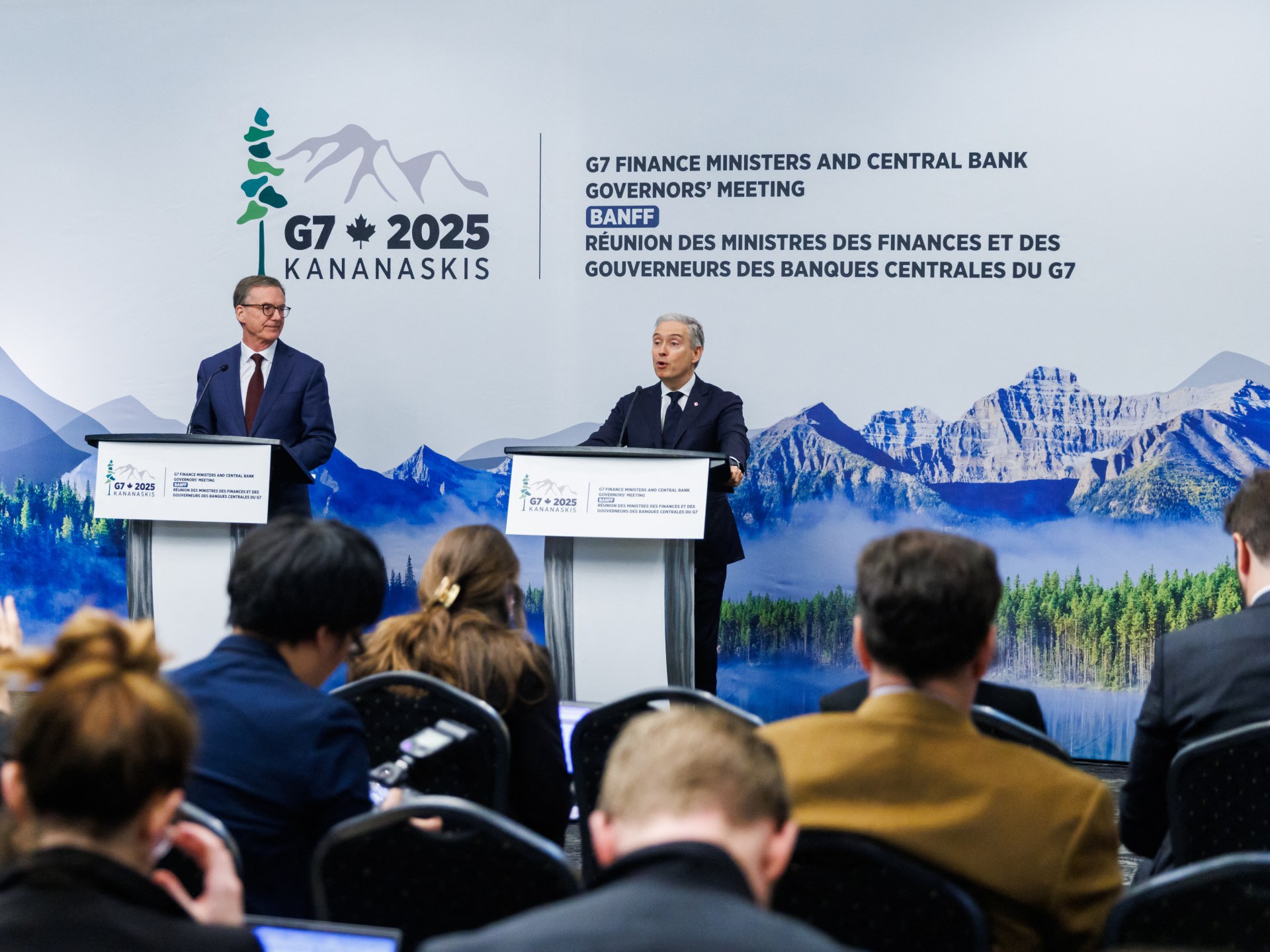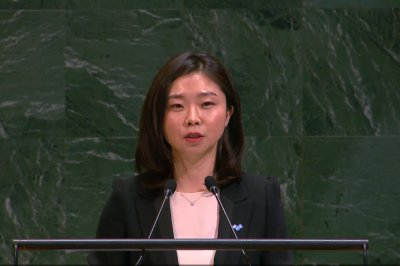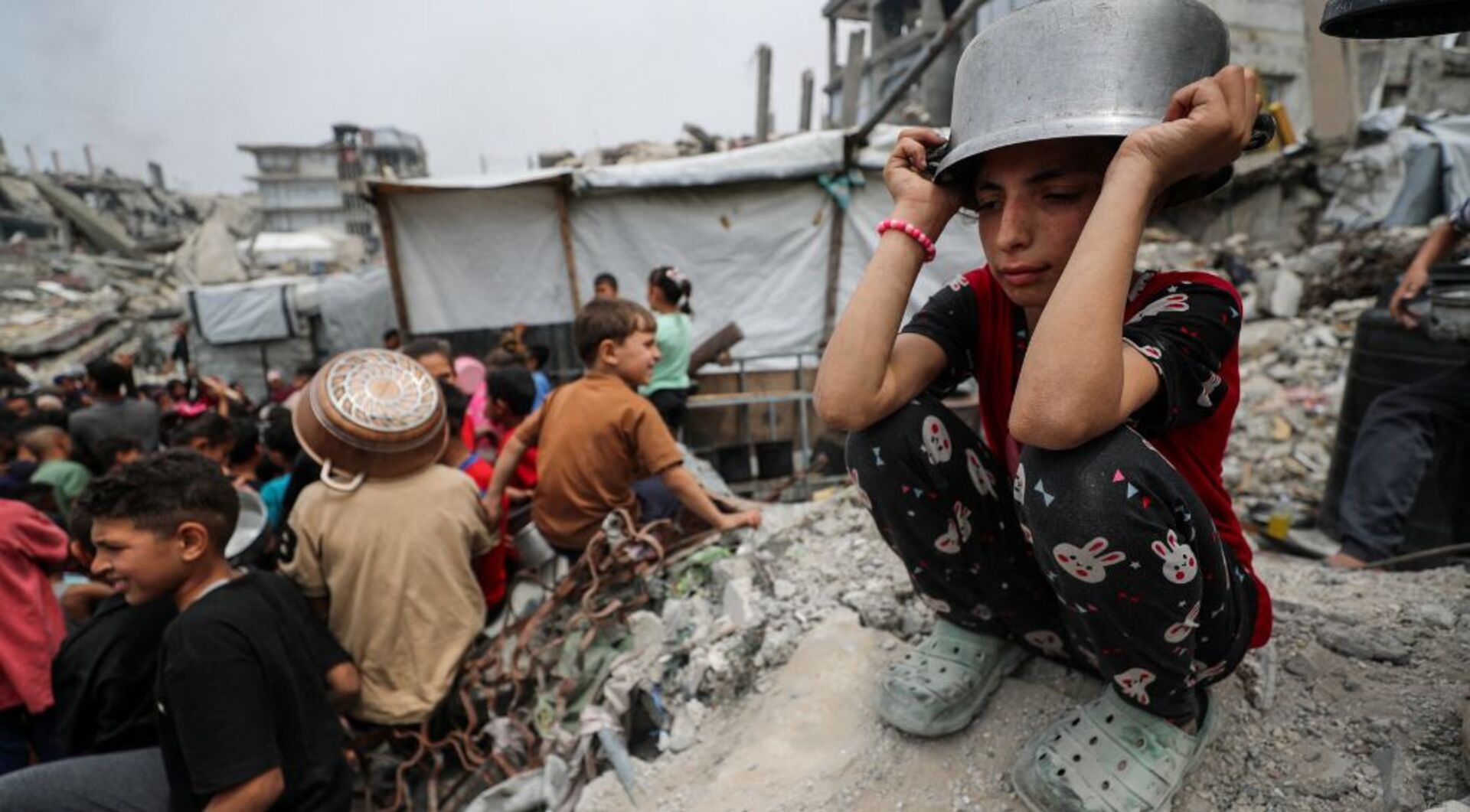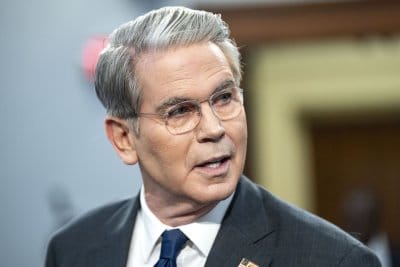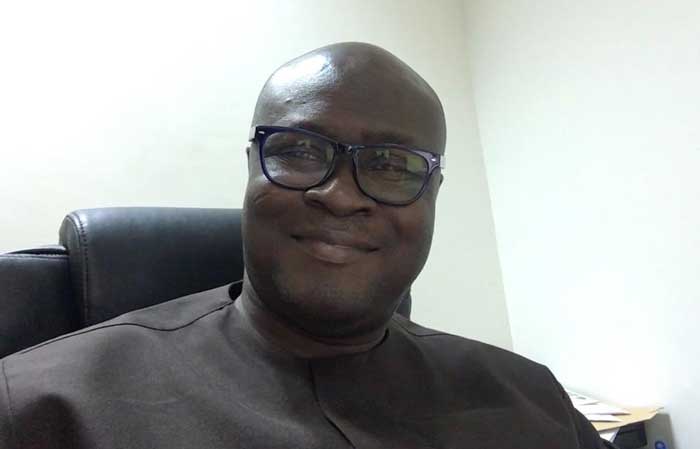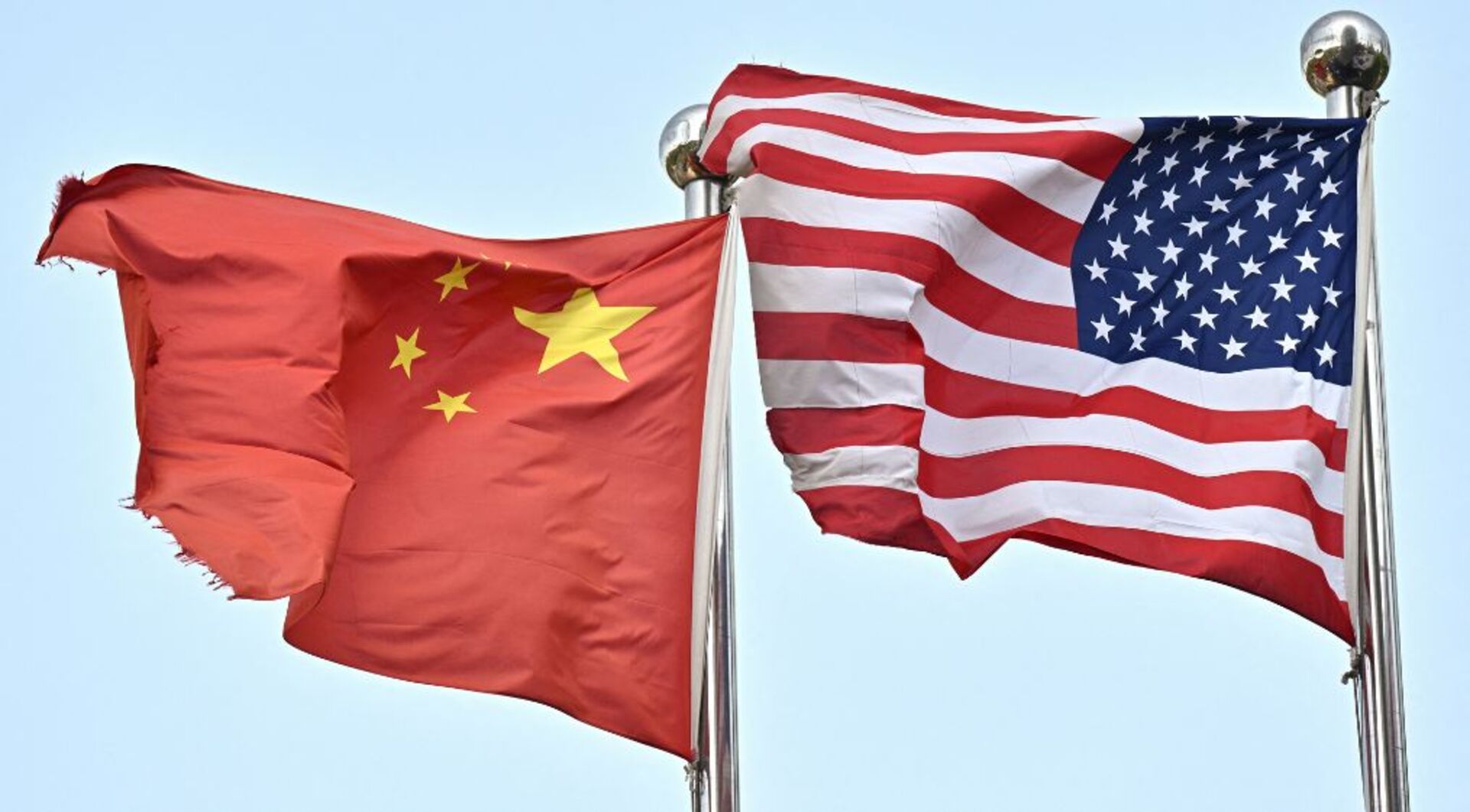Trump trade strategy roiled by court blocking global tariffs
President Trump’s tariff strategy has been thrown into turmoil after a U.S. court issued a rare rebuke blocking many of the import taxes he has threatened and imposed on other countries.
In a ruling issued late Wednesday, a three-judge panel for the U.S. Court of International Trade declared that the Trump administration had wrongly invoked a 1977 law in imposing his “Liberation Day” tariffs on dozens of countries and they were therefore illegal. It also extended that ruling to previous tariffs levied on Canada, Mexico and China over the security of the U.S. border and trafficking in fentanyl.
The Trump administration immediately said it would appeal, putting the fate of the tariffs in the hands of an appellate court and potentially the Supreme Court. The ruling doesn’t affect Trump’s first-term levies on many imports from China or sectoral duties planned or already imposed on goods including steel, which are based on a different legal foundation that the Trump administration may now be forced to make more use of to pursue its tariff campaign.
It’s unclear just how fast Wednesday’s ruling will go into effect, with the court giving the government up to 10 days to carry out the necessary administrative moves to remove the tariffs. But if the decision holds, it would in a matter of days eliminate new 30% U.S. tariffs on imports from China, 25% tariffs on goods from Canada and Mexico and 10% duties on most other goods entering the U.S.
Those tariffs and the prospect of retaliatory ones have been seen as a significant drag on U.S. and global growth and eliminating them — even temporarily — would improve prospects for the world’s major economies.
There is uncertainty over whether the ruling represents a permanent setback to Trump’s push to reshape global trade or a mere impediment. Trump and his supporters have attacked judges as biased and his administration has been accused of failing to fully comply with other court orders, raising questions over whether it will do so this time.
A White House spokesperson dismissed the ruling as one made by “unelected judges” who should not have the power “to decide how to properly address a national emergency.” Trump has invoked national emergencies ranging from the U.S. trade deficit to overdose deaths to justify many of his tariffs.
“Foreign countries’ nonreciprocal treatment of the Unites States has fueled America’s historic and persistent trade deficits,” White House spokesman Kush Desai said in a statement. “These deficits have created a national emergency that has decimated American communities, left our workers behind, and weakened our defense industrial base — facts that the court did not dispute.”
If the ruling isn’t reversed or ignored, one of the consequences could be greater fiscal concerns at a time when bond markets are questioning the trajectory of the U.S.’s mounting debt load. The Trump administration has been citing increased tariff revenues as a way to offset tax cuts in his “one big, beautiful bill” now before Congress, which is estimated to cost $3.8 trillion over the next decade.
U.S. importers paid a record $16.5 billion in tariffs in April and Trump’s aides have said they expected that to rise in the coming months.
Major trading partners including China, the European Union, India, and Japan that are in negotiations with the Trump’s administration must now decide whether to press ahead in efforts to secure deals or slow walk talks on the bet they now have a stronger hand.
Deal doubts
Also thrown into doubt would be the outlines for a trade deal that Trump reached with the UK earlier in May. That potential pact calls for the imposition of a 10% U.S. tariff on all imports from the UK that would be null and void if Wednesday’s decision endures.
“I don’t know why any country would want to engage in negotiations to get out of tariffs that have now been declared illegal,” said Jennifer Hillman, a Georgetown Law School professor and former WTO judge and general counsel for the U.S. Trade Representative. “It’s a very definitive decision that the reciprocal worldwide tariffs are simply illegal.”
Hillman and other legal experts pointed out that Trump has other legal authorities he can draw on. But none would give him as broad powers as those he invoked under the International Emergency Economic Powers Act, or IEEPA.
A provision of the 1974 trade act gives presidents the power to impose tariffs of up to 15% for up to 150 days, though only in the event a balance of payments crisis, which Trump may not want to declare given the current nervous state of bond markets, Hillman said.
Trump could also invoke other authorities to impose tariffs on individual sectors or countries, as he did in his first term. In recent months, he has already used national security powers to impose duties on imported steel, aluminum and cars and launched seven other investigations pertaining to things like pharmaceuticals, lumber and critical minerals.
“The Trump administration’s toolbox won’t be completely empty,” Dmitry Grozoubinski, director of ExplainTrade and author of the book “Why Politicians Lie About Trade” said in an interview on Bloomberg Television. But as for IEEPA, “if they comply with this ruling that takes that toy out of the toy box.”
More uncertainty
Wednesday’s ruling came in two parallel cases brought by a conservative group on behalf of a small business and U.S. states controlled by Democrats.
“This ruling reaffirms that the President must act within the bounds of the law, and it protects American businesses and consumers from the destabilizing effects of volatile, unilaterally imposed tariffs,” said Jeffrey Schwab, senior counsel for the conservative Liberty Justice Center, which brought one of the cases.
For many other businesses, it brought the prospect of yet another sharp turn in U.S. tariff policies and more short-term questions and headaches.
Southern California-based Freight Right Global Logistics has several shipments on the water now for clients all over the U.S., carrying goods largely from China. Those containers are filled with everything from toys to robots, and it’s very uncertain what the tariff burden will be for those shipments when they land, said Freight Right Chief Executive Robert Khachatryan.
Khachatryan fielded questions Wednesday evening from his clients on potential refunds, which tariffs will be removed, and what would be the effective dates.
“We are working hard to answer customers questions but the reality is that there is not enough information out there yet,” he said. “Tomorrow we’re going to be all over the place figuring out what this means in practice.”
Donnan, Larson and Curtis write for Bloomberg News.
